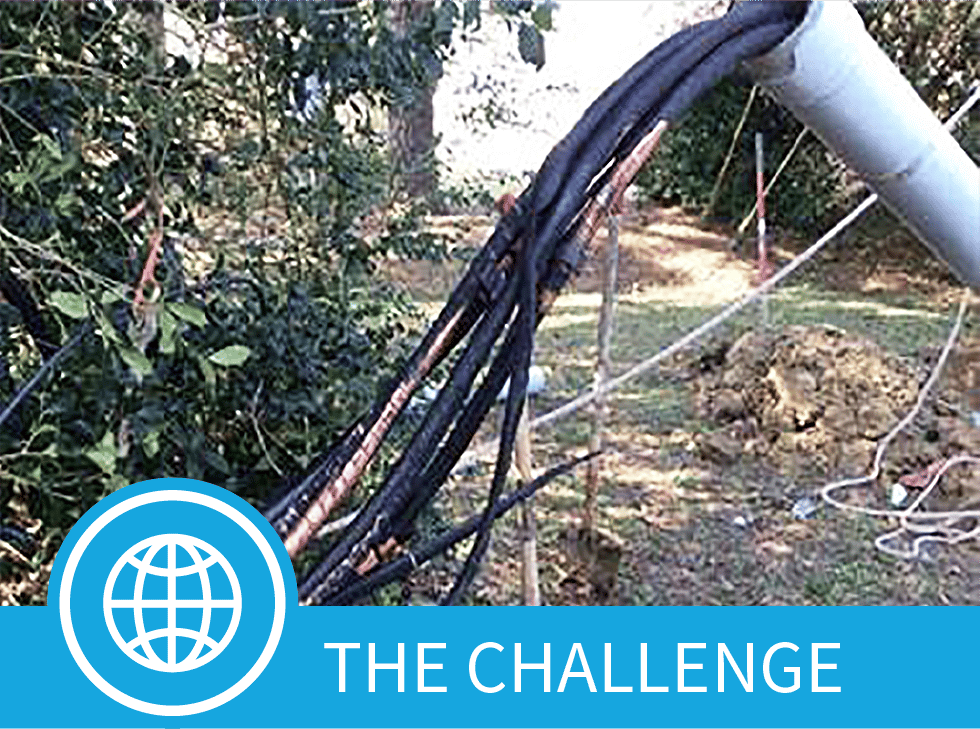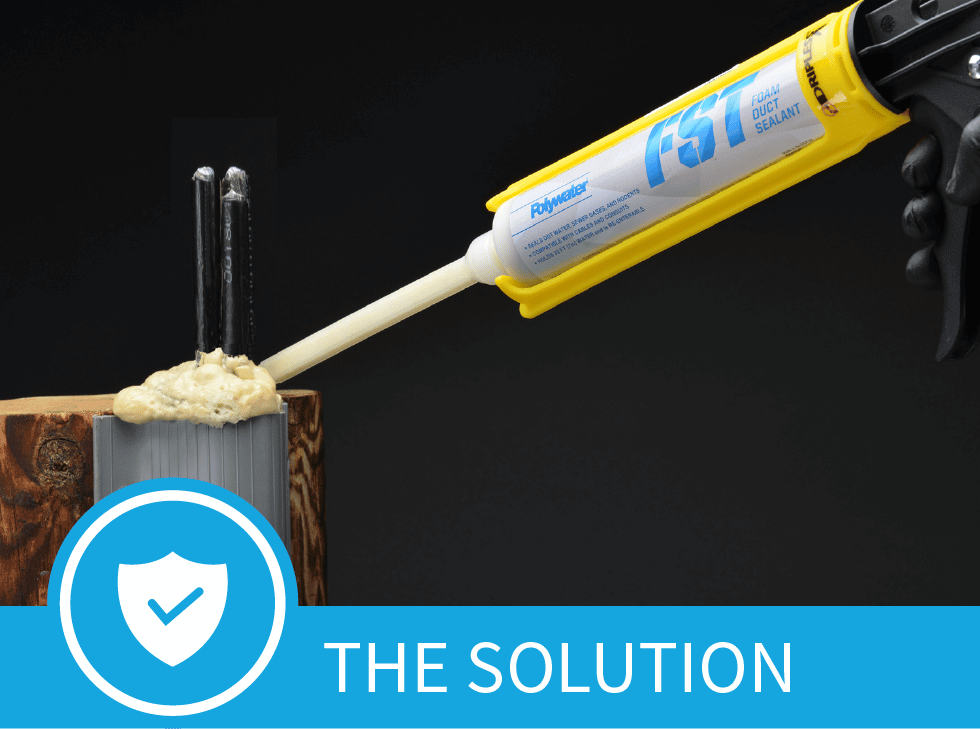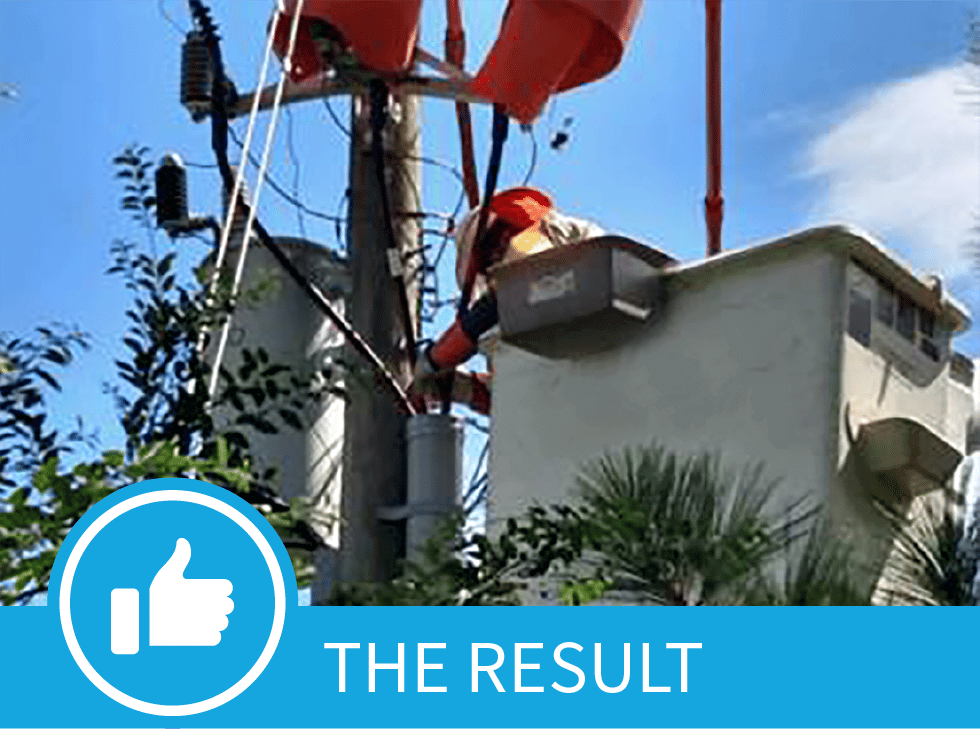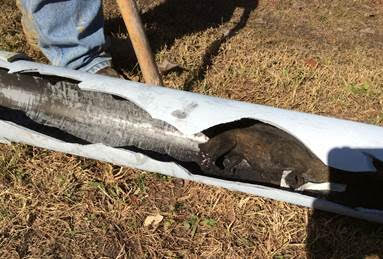FST Stops a Gnawing Problem
Risers Sealed with Polywater FST to Stop Squirrels from Damaging Cables.

Squirrels Damage Cables in Riser
The open top of riser poles and u-guards are vulnerable to both weather and rodents. Customers of an electrical cooperative in North Carolina were becoming frustrated and angry due to service interruptions. When lineman crews were dispatched, they found cables stripped of their protective jackets and insulation. The cause was found to be a squirrel. As the problem persisted, it was obvious the squirrel hadn’t been acting alone and the solution was to seal the top of the riser pole to keep the pests out. But sealing larger cables in risers can be difficult due to multiple cables, often in complex configurations such as tri-plexed.

Creating a Barrier to Rodent Entry with FST
The cooperative evaluated riser sealing products. Mechanical riser covers needed to be specific to the inner diameter of the riser/u-guard, to the number of cables in the configuration, and to the outside diameter of the cables. Additionally, the cooperative feared the plastic seals could be gnawed by rodents. The challenge with traditional duct seal or single-part insulating foam is they fail very quickly.
Polywater FST was selected because it was specifically developed as a conduit sealant to be compatible with all cable jackets and conduit types. The closed-cell foam cures to a strong rigid barrier but is removable when future access is required. It can seal any configuration of cables in any size ID of risers or u-guards.

Effective and Cost-Efficient Solution for Squirrels
Polywater FST was installed in the top 3 inches of the riser pole with the cables in place. This airtight/watertight seal created a tough, UV stable barrier to weather and rodents. Polywater FST is compatible with all cable/conduit sizes and materials so the system remained intact. The cooperative was very pleased with the results and the customers were much happier with the reduced outages.

